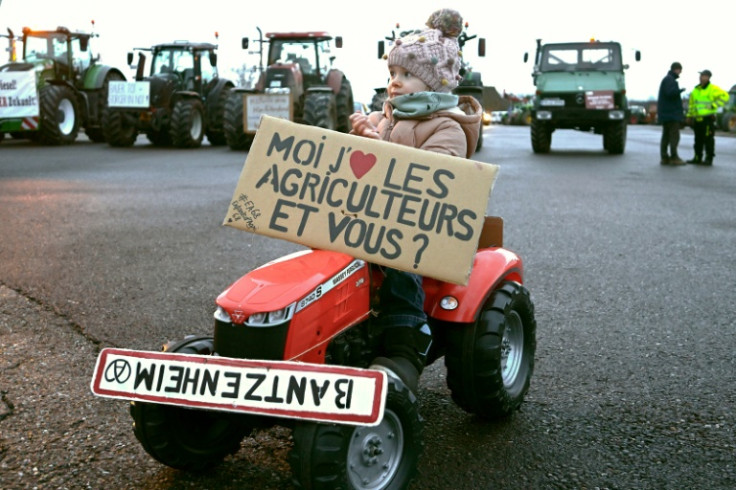
France's agriculture minister said Friday that the worst of a crisis that saw farmers block roads nationwide was over, as protesters began lifting roadblocks following government promises of cash and eased regulation.
In some of the angriest protests that have spread across Europe over the past week, French farmers have been out in force for more than a week, using tractors to block key roads into Paris and other major highways nationwide.
On Thursday, two main farming unions announced the suspension of the acton, urging the protesters to take their tractors off the streets, after Prime Minister Gabriel Attal promised cash, eased regulations and protection against unfair competition.
Agriculture Minister Marc Fesneau said Friday that the worst of the crisis was "pretty much behind us".
"But the issues that we have to deal with and that have emerged in this crisis are still ahead of us," he told CNews television.
Authorities said Thursday evening that many roadblocks across the country were being lifted or eased and farmers continued to move tractors off the streets on Friday morning, even though some blockades remained in place.
"It was a historic, tough, strong mobilisation," said Laurent Saint-Affre of the FDSEA union in the southern Aveyron department. But he said that a number of sticking points remained, warning authorities that farmers could take their tractors out on the streets again "in a few days".
Speaking to RTL, Arnaud Gaillot, head of the Young Farmers (JA) union, pointed to a sense of "fatigue" after ten days of protests and a "desire to put things on hold."
In Yvelines, southwest of Paris, the number of vehicles involved in a blockade had fallen from around twenty to seven tractors on Friday morning, police said.
The roadblocks on the A4 and A5 motorways in Seine-et-Marne east of the French capital have been lifted.
Around Lyon, all roadblocks were expected to be lifted by 2.00 pm (1300 GMT) on Friday.
A police source told AFP however that some protesters wanted to stay put until Saturday, while several "isolated groups" wanted to remain in place until France's huge Salon de l'Agriculture trade fair that opens on February 24.
The FNSEA, France's biggest rural union, wants to see the first government measures implemented by the start of the trade fare and a law passed by June, its head Arnaud Rousseau said on BFMTV.
Thousands of farmers from across Europe had gathered in Brussels on Thursday, where French President Emmanuel Macron held talks with European Commission chief Ursula von der Leyen.
Macron told reporters that France had managed to persuade the EU to "impose stricter rules" for cereal and poultry imports, including from war-torn Ukraine.







